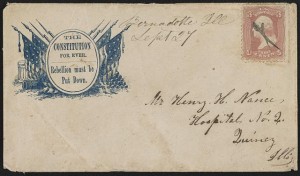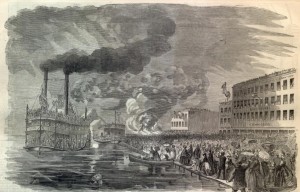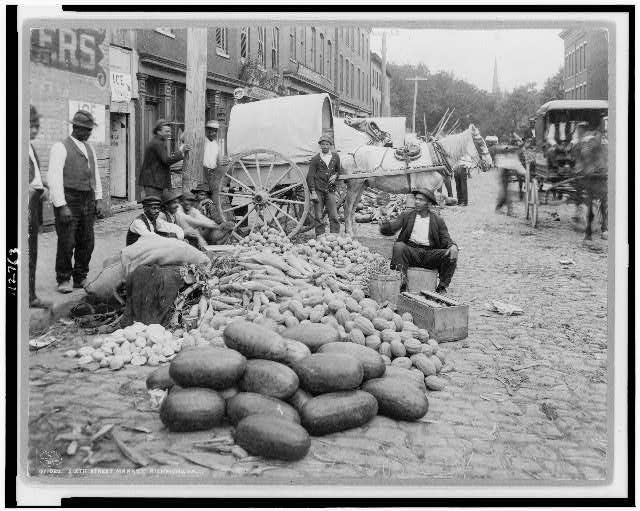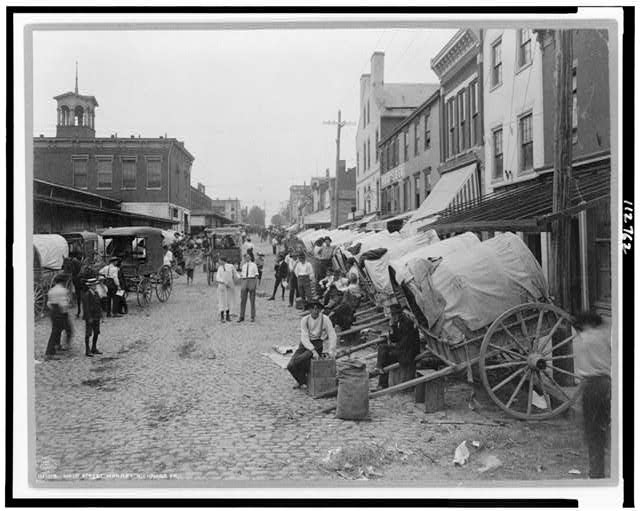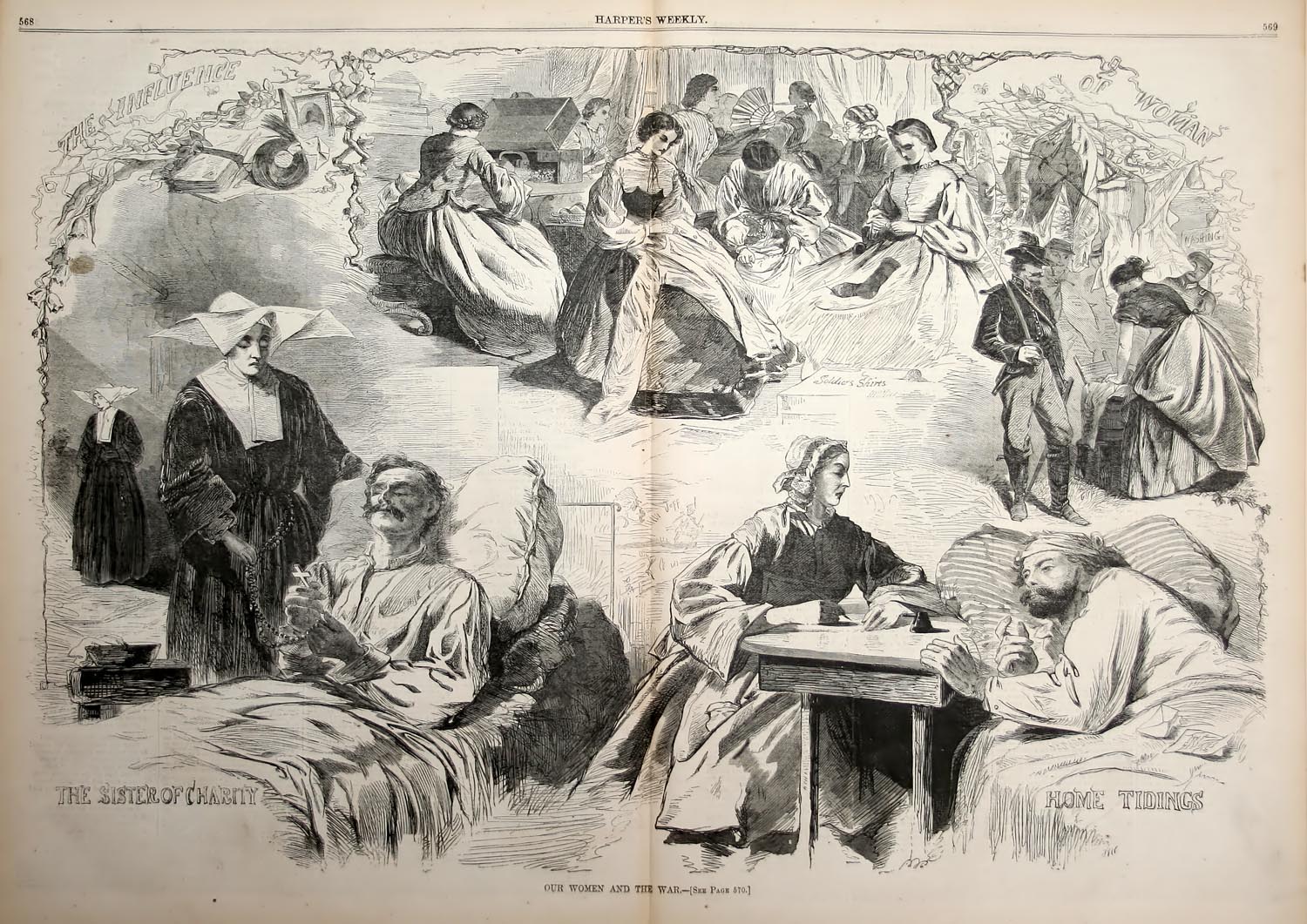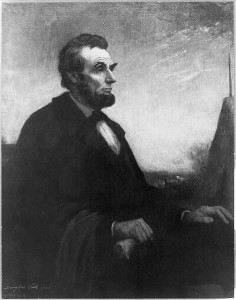
No ‘direct revelation’ on offer: pondering the pros and cons of an Emancipation Proclamation
In this letter dated 150 years ago yesterday President Lincoln admits to some religious folk from Chicago that the question of proclaiming liberty to the slaves “is on my mind, by day and night, more than any other.” But he thinks a proclamation issued in early September 1862 would be kind of like grasping at straws because “I cannot even enforce the Constitution in the rebel States”. He’s also concerned about the effect of emancipation on Union sentiment in the border states. Moreover, as the president wrote the following, Lee’s rebel army was advancing in the border state of Maryland. Pennsylvanians are anticipating an invasion.
President Lincoln believes he has the constitutional power to do anything that will help him put down the rebellion; he admits that slavery is the sine qua non of the rebellion. Now might be a bad time, but the question of a proclamation is still “under advisement”.
From THE PAPERS AND WRITINGS OF ABRAHAM LINCOLN at Project Gutenberg:
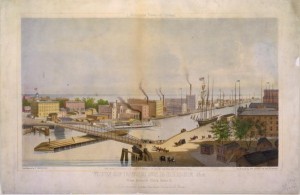
A Chicago view (circa 1861)
A COMMITTEE FROM THE RELIGIOUS DENOMINATIONS OF CHICAGO,
September 13,1862.
The subject presented in the memorial is one upon which I have thought much for weeks past, and I may even say for months. I am approached with the most opposite opinions and advice, and that by religious men, who are equally certain that they represent the Divine will. I am sure that either the one or the other class is mistaken in that belief, and perhaps in some respects both. I hope it will not be irreverent for me to say that if it is probable that God would reveal his will to others, on a point so connected with my duty, it might be supposed he would reveal it directly to me; for, unless I am more deceived in myself than I often am, it is my earnest desire to know the will of Providence in this matter. And if I can learn what it is I will do it! These are not, however, the days of miracles, and I suppose it will be granted that I am not to expect a direct revelation. I must study the plain physical facts of the case, ascertain what is possible, and learn what appears to be wise and right.
The subject is difficult, and good men do not agree. For instance, the other day, four gentlemen of standing and intelligence from New York called as a delegation on business connected with the war; but before leaving two of them earnestly besought me to proclaim general emancipation, upon which the other two at once attacked them. You know also that the last session of Congress had a decided majority of antislavery men, yet they could not unite on this policy. And the same is true of the religious people. Why, the rebel soldiers are praying with a great deal more earnestness, I fear, than our own troops, and expecting God to favor their side: for one of our soldiers who had been taken prisoner told Senator Wilson a few days since that he met nothing so discouraging as the evident sincerity of those he was among in their prayers. But we will talk over the merits of the case.
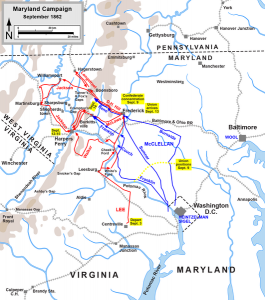
Whose Maryland? – not to mention that the president can’t enforce US Constitution in the rebellious states
What good would a proclamation of emancipation from me do, especially as we are now situated? I do not want to issue a document that the whole world will see must necessarily be inoperative, like the Pope’s bull against the comet! Would my word free the slaves, when I cannot even enforce the Constitution in the rebel States? Is there a single court, or magistrate or individual that would be influenced by it there? And what reason is there to think it would have any greater effect upon the slaves than the late law of Congress, which I approved, and which offers protection and freedom to the slaves of rebel masters who come within our lines? Yet I cannot learn that that law has caused a single slave to come over to us. And suppose they could be induced by a proclamation of freedom from me to throw themselves upon us, what should we do with them? How can we feed and care for such a multitude? General Butler wrote me a few days since that he was issuing more rations to the slaves who have rushed to him than to all the white troops under his command. They eat, and that is all; though it is true General Butler is feeding the whites also by the thousand; for it nearly amounts to a famine there. If, now, the pressure of the war should call off our forces from New Orleans to defend some other point, what is to prevent the masters from reducing the blacks to slavery again? for I am told that whenever the rebels take any black prisoners, free or slave, they immediately auction them off. They did so with those they took from a boat that was aground in the Tennessee River a few days ago. And then I am very ungenerously attacked for it! For instance, when, after the late battles at and near Bull Run, an expedition went out from Washington under a flag of truce to bury the dead and bring in the wounded, and the rebels seized the blacks who went along to help, and sent them into slavery, Horace Greeley said in his paper that the government would probably do nothing about it. What could I do?
Now, then, tell me, if you please, what possible result of good would follow the issuing of such a proclamation as you desire? Understand, I raise no objections against it on legal or constitutional grounds; for, as commander-in-chief of the army and navy, in time of war I suppose I have a right to take any measure which may best subdue the enemy; nor do I urge objections of a moral nature, in view of possible consequences of insurrection and massacre at the South. I view this matter as a practical war measure, to be decided on according to the advantages or disadvantages it may offer to the suppression of the rebellion.
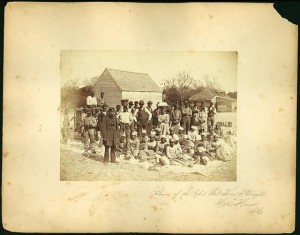
sine qua non
I admit that slavery is the root of the rebellion, or at least its sine qua non. The ambition of politicians may have instigated them to act, but they would have been impotent without slavery as their instrument. I will also concede that emancipation would help us in Europe, and convince them that we are incited by something more than ambition. I grant, further, that it would help somewhat at the North, though not so much, I fear, as you and those you represent imagine. Still, some additional strength would be added in that way to the war, and then, unquestionably, it would weaken the rebels by drawing off their laborers, which is of great importance; but I am not so sure we could do much with the blacks. If we were to arm them, I fear that in a few weeks the arms would be in the hands of the rebels; and, indeed, thus far we have not had arms enough to equip our white troops. I will mention another thing, though it meet only your scorn and contempt. There are fifty thousand bayonets in the Union armies from the border slave States. It would be a serious matter if, in consequence of a proclamation such as you desire, they should go over to the rebels. I do not think they all would—not so many, indeed, as a year ago, or as six months ago—not so many to-day as yesterday. Every day increases their Union feeling. They are also getting their pride enlisted, and want to beat the rebels. Let me say one thing more: I think you should admit that we already have an important principle to rally and unite the people, in the fact that constitutional government is at stake. This is a fundamental idea going down about as deep as anything.
Do not misunderstand me because I have mentioned these objections. They indicate the difficulties that have thus far prevented my action in some such way as you desire. I have not decided against a proclamation of liberty to the slaves, but hold the matter under advisement; and I can assure you that the subject is on my mind, by day and night, more than any other. Whatever shall appear to be God’s will, I will do. I trust that in the freedom with which I have canvassed your views I have not in any respect injured your feelings.
Hal Jespersen’s map is licensed by Creative Commons

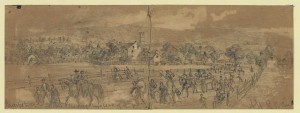




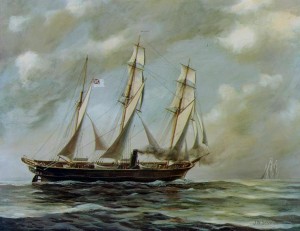
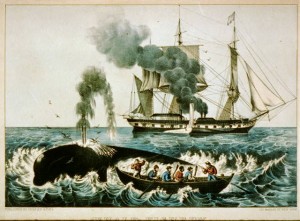
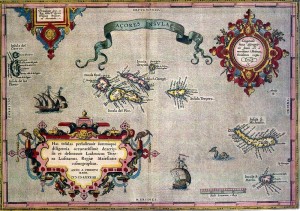
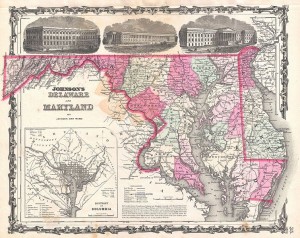
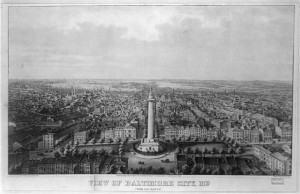
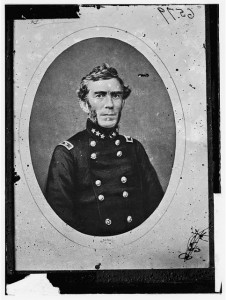
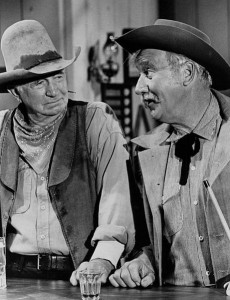

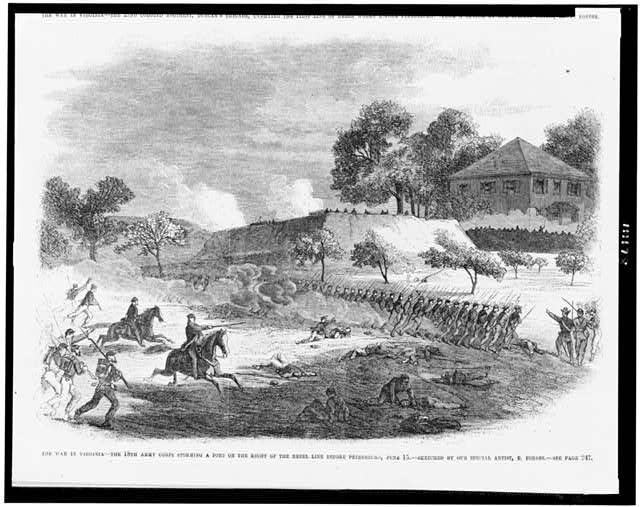
![Edwin S. [i.e. M.] Stanton, Lincoln's Secretary of War (Hartford, Conn. : The War Photograph & Exhibition Co., No. 21 Linden Place, (between 1861 and 1865); LOC: vLC-DIG-stereo-1s02864) Edwin S. [i.e. M.] Stanton, Lincoln's Secretary of War (Hartford, Conn. : The War Photograph & Exhibition Co., No. 21 Linden Place, (between 1861 and 1865); LOC: vLC-DIG-stereo-1s02864)](https://www.bluegrayreview.com/wp-content/uploads/2012/09/1s02864r-300x175.jpg)
